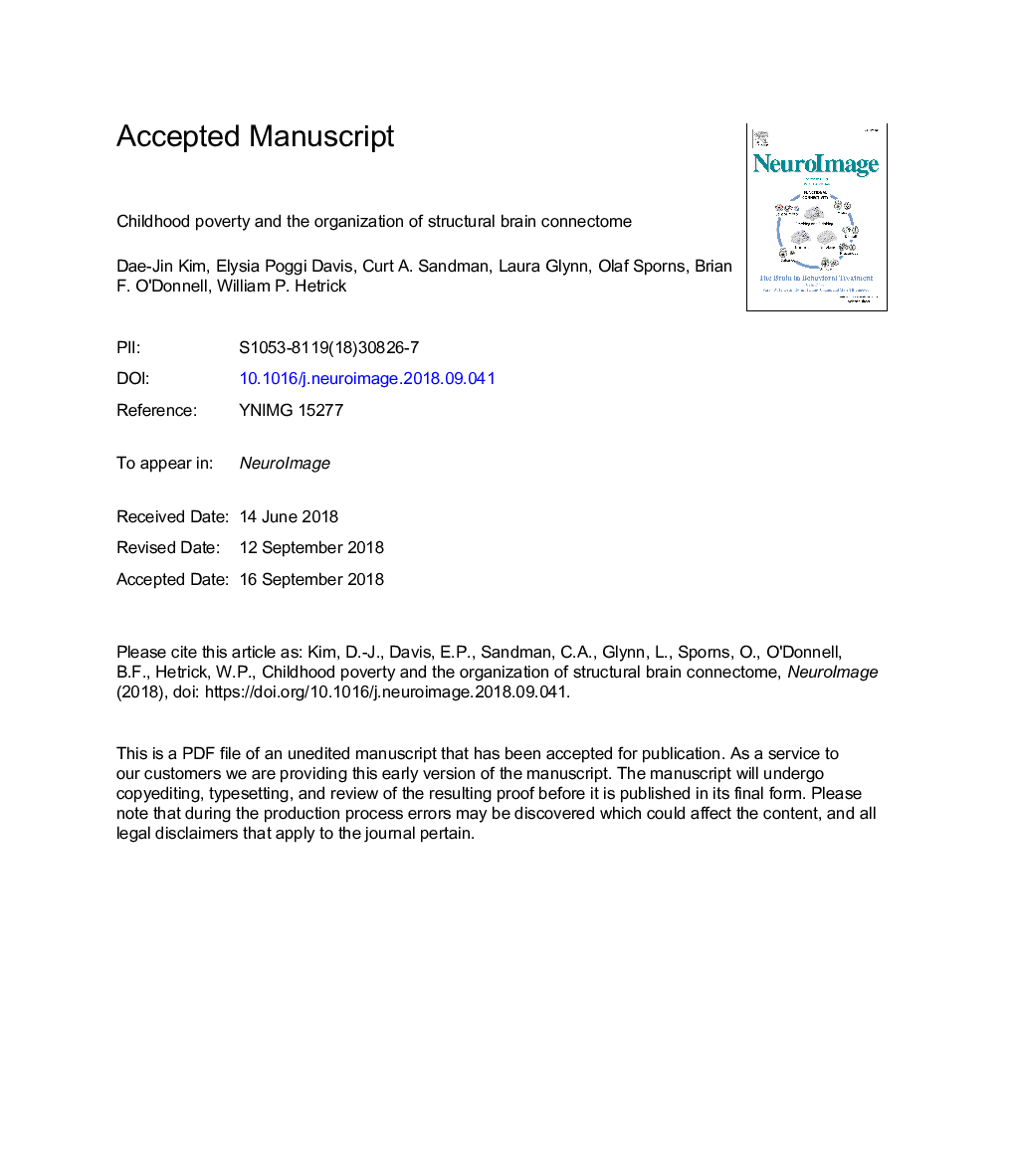| کد مقاله | کد نشریه | سال انتشار | مقاله انگلیسی | نسخه تمام متن |
|---|---|---|---|---|
| 10215591 | 1678892 | 2019 | 32 صفحه PDF | دانلود رایگان |
عنوان انگلیسی مقاله ISI
Childhood poverty and the organization of structural brain connectome
ترجمه فارسی عنوان
فقر در دوران کودکی و سازمان مغز ساختاری ارتباط برقرار می کند
دانلود مقاله + سفارش ترجمه
دانلود مقاله ISI انگلیسی
رایگان برای ایرانیان
موضوعات مرتبط
علوم زیستی و بیوفناوری
علم عصب شناسی
علوم اعصاب شناختی
چکیده انگلیسی
Socioeconomic disadvantage is associated with atypical development in specific brain regions, yet the relation between poverty and whole brain network organization (i.e., the connectome, a set of brain regions connected with neuronal pathways) has not been characterized. Developmental studies indicate that the connectome undergoes rapid change during childhood and is consequently likely to be highly sensitive to both salutary and detrimental influences. We investigated associations between the socioeconomic disparities measured by the income-to-needs ratio (INR) in childhood and structural brain network organization with 144 healthy children between 6 and 11 years of age (mean ageâ¯=â¯8 years). INR of girls was positively and logarithmically associated with the extent to which brain networks were efficiently organized, suggesting that girls in more impoverished environments had less efficient brain network organization. Lower INR was associated with network inefficiency in multiple cortical regions including prefrontal cortex, cingulate, and insula, and in subcortical regions including the hippocampus and amygdala. These findings suggest that childhood poverty may result in wide-spread disruptions of the brain connectome among girls, particularly at the lowest INR levels, and are differentially expressed in females and males.
ناشر
Database: Elsevier - ScienceDirect (ساینس دایرکت)
Journal: NeuroImage - Volume 184, 1 January 2019, Pages 409-416
Journal: NeuroImage - Volume 184, 1 January 2019, Pages 409-416
نویسندگان
Dae-Jin Kim, Elysia Poggi Davis, Curt A. Sandman, Laura Glynn, Olaf Sporns, Brian F. O'Donnell, William P. Hetrick,
